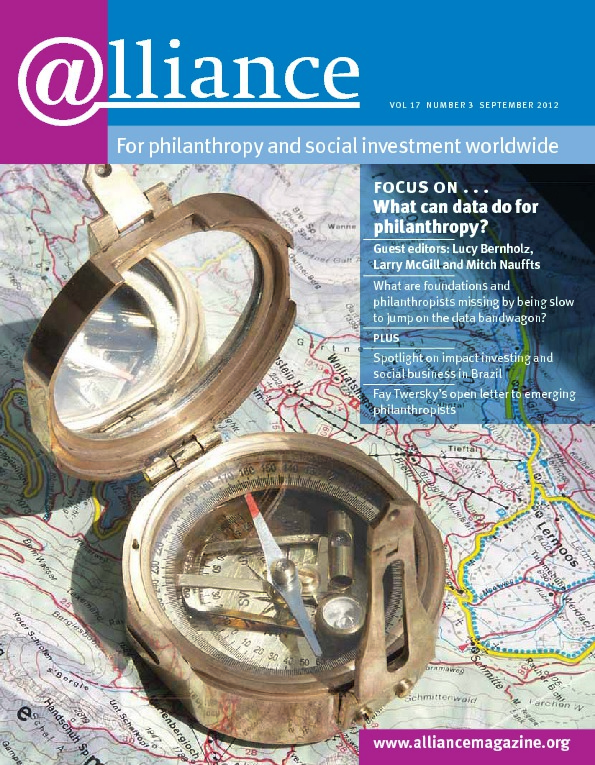It was standing room only at yesterday’s ‘Risky Business’ session, organized by the Philanthropy for Social Justice and Peace Working Group. It would be interesting to know more about what brought so many people to the session – the fortune cookies, the impressive co-presenting parrot or the fine acting may have been part of the draw, as might the promise of a ‘highly interactive session’ (a nice change from the more conventional panel-of-three-speakers arrangement). But I also wondered about the extent to which the current and apparently intractable global economic crisis was making foundations reflect more on issues of risk. Risk may be a short word but it sure can pack a lot of different meanings (both good and bad) and after two hours of discussion I was starting to see both the limits of the English language and the fundamental importance of context in framing any conversation around risk.
 According to a recent survey presented by Barry Knight (and his parrot), and there is a profound disconnect (indeed the official diagnosis is ‘cognitive dissonance’ – and first aid packs were distributed at the end of the session to help temper the symptoms) between how much risk foundations believe they are prepared to take and how much they actually take. (This was reiterated by Fiona Ellis in this morning’s opening plenary when she described how good foundations could be at talking about risk and yet how hard it often proved when it came to translating it into action.) Furthermore, in a field that prides itself on its potential for innovation and creativity, it turns out that, whether we like it or not, we all (whether as individuals or institutions) conform to certain types of behavioural stereotypes when it comes to risk. So there are the ‘kamikazes’, whose approach is to go in guns blazing (and perhaps veer into risk-as-irresponsibility types of behaviour), the ‘creative adventurists’ (visions of early Victorian gentlewomen heading to on their first ‘European tour’) as well as the confident old-timers (of the ‘Shit happens’ school of thought). (Thoughts for the EFC: maybe the basis of a new set of interest groups?).
According to a recent survey presented by Barry Knight (and his parrot), and there is a profound disconnect (indeed the official diagnosis is ‘cognitive dissonance’ – and first aid packs were distributed at the end of the session to help temper the symptoms) between how much risk foundations believe they are prepared to take and how much they actually take. (This was reiterated by Fiona Ellis in this morning’s opening plenary when she described how good foundations could be at talking about risk and yet how hard it often proved when it came to translating it into action.) Furthermore, in a field that prides itself on its potential for innovation and creativity, it turns out that, whether we like it or not, we all (whether as individuals or institutions) conform to certain types of behavioural stereotypes when it comes to risk. So there are the ‘kamikazes’, whose approach is to go in guns blazing (and perhaps veer into risk-as-irresponsibility types of behaviour), the ‘creative adventurists’ (visions of early Victorian gentlewomen heading to on their first ‘European tour’) as well as the confident old-timers (of the ‘Shit happens’ school of thought). (Thoughts for the EFC: maybe the basis of a new set of interest groups?).
Subscribe now from only £45 a year!
This article is only available for our subscribers
Existing users can login here





